Hospital chaplains work around the clock to provide holistic care for patients, ranging from being a comforting presence to powerful moments of prayer and grief.
By Anna Pearson | Lifestyle Editor
Deanna Conrad enters the hospital waiting room, where the parents of a car accident victim have just arrived, anxiously awaiting news about their child. They don’t yet know whether their child could be in critical condition, or even dead.
Conrad is the one to tell them their child has passed away.
Conrad is the one to handle the grief that comes directly after learning of a loved one’s death.
Conrad is the one whose job is to be a comforting presence — even if no words are shared.
In a hospital, nurses, doctors, physician’s assistants and therapists can all be a part of a patient’s care team. In order to provide holistic care, however, chaplains provide another level of support that those medical staff are not always able to– and that support often looks like listening to people’s souls.
When Kiersti Phenow enters a room to greet a hospital patient, she’s often met with questions instead of open arms.
Who is this woman? Why is she here, if not for medical care? Is she a priest? Is someone dying?
Most people don’t understand what her role in the hospital ecosystem is and how essential her job is to the care of each patient. Many people seek prayers or religious guidance, which she can provide, but Phenow is not at United Hospital just to pray.
In her position as a hospital chaplain at United Hospital in St. Paul, Minnesota, Phenow works primarily with mental health patients and spirituality groups as a source of support and advocating for recognition of spirituality in a primarily biomedical setting.
“There’s never the right thing to say,” Phenow said. “I’m constantly leaning into my own powerlessness of knowing there’s no way to be perfect or good at my job, but to always lean in to being present and trust that that’s enough.”
She never imagined herself in a chaplaincy role six years ago, when she sat at the dinner table with her professor at Bethel University, Deanna Conrad, celebrating Conrad’s acceptance into her own chaplain residency program.
Conrad had a meandering road to chaplaincy, receiving an undergraduate degree in biology from Bethel in 1991, later working for eight years as an adjunct professor in the Biblical and Theological Studies department. Her twin sister had always pushed her to try out chaplaincy, despite never pinning it as her career of choice.
“From the residency early on, it was perfect. This is what I should have been doing forever. But I couldn’t have done it when I was 22 or 26, if I had done seminary right away. It just wasn’t my story,” Conrad said.
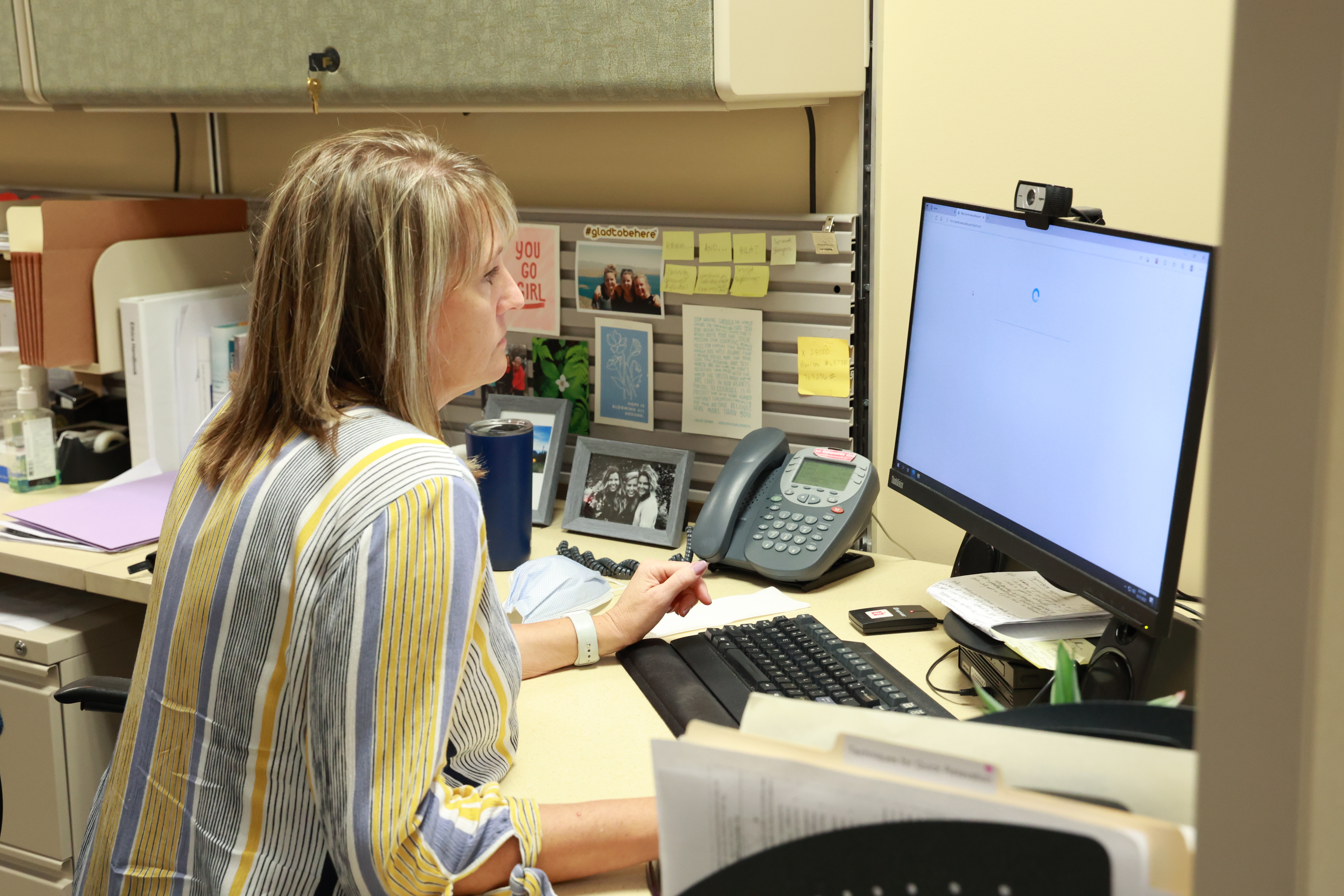
Conrad now works at Mercy Hospital in Coon Rapids –about 20 minutes northwest of Bethel –, and her focus areas include the intensive care unit, oncology, mother and baby unit and the emergency room. Every day brings something new, but often includes simply listening to people and helping them process what’s going on in their lives.
During Phenow’s time at Bethel studying social work and reconciliation from 2013 to 2017, she worked in the community gardens in Frogtown, as part of Bethel’s Frogtown-Summit University partnership. The organization provided a sacred and healing place for her, she said, and the experience still informs her work now. Phenow was led to divinity school because of her interests in food equity, health and ecology through a lens of spirituality. Chaplaincy pulled all of her career interests together.
“Not all of it is the relational part. It’s not always spiritual. Sometimes it’s just emotional support,” Phenow said.
Chaplains can work with all patients, no matter why they are in the hospital. Visits can range from dealing with grief of losing a loved one, new diagnosis, “length of stay” visits to requested visits.
“I’ll introduce myself, say ‘Hi, I’m Deanna, I’m a chaplain here,’ and they say, ‘Oh my gosh, is it that bad? Am I dying?’” Conrad said. “You know, people think it’s only end of life that we’re dealing with.”
Although Conrad and Phenow both practice Christianity in their personal lives, being a chaplain does not always have religious affiliation. They deal with patients from any religion, any background or any lifestyle — chaplains are much more about the spirit of someone’s soul and being in community with others when they need it most.
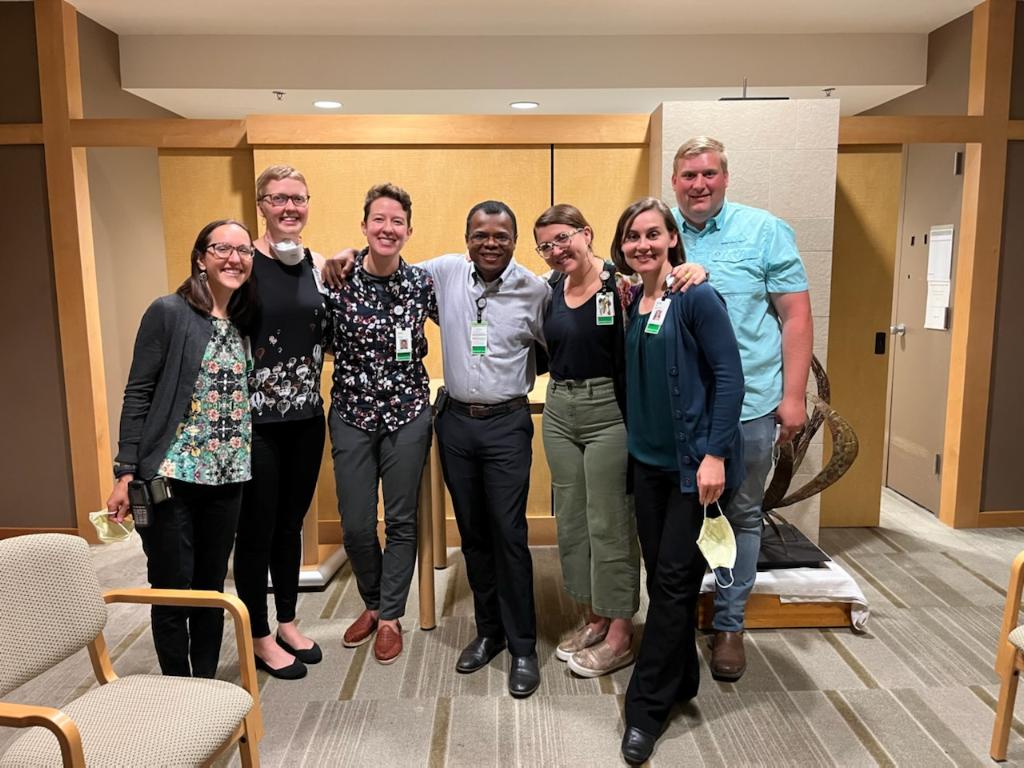
Every day on the job is different, and sometimes that includes moments saturated with pain and grief. During visits to patients, it can be difficult to trust that just being present with them is enough. The unexpected tragedies are the heaviest, that really stick with them — these are the moments that there aren’t any words that could be said.
“I hold with me the tears and sobs of loved ones, and that there weren’t any words to offer, just the chance to be a witness to that moment,” Phenow said.
Conrad has been with thousands of patients, many situations involving children. Loss of young people, as well as when an adult passes away and there’s children involved, have been the hardest to shake.
Conversations with long-term, repeat or end-of-life patients have helped Conrad discover the beauty in spending meaningful time together. Patients trust her with their deepest fears, as they attempt to discover a sense of life events and themselves: their meaning making.
Although individual faith and religion play a big role in providing a healthy outlet for prayer or debrief from work, chaplains use a variety of self-care rituals that are essential to separation of work and their personal lives. In order to be fully present for patients, they must first be of sound heart and mind.
Exercising, yoga, music, books, worship – these are what Conrad practices to take care of her own soul, and process heavy things she deals with as a chaplain. Walking, moving her body or spending time outdoors is how Phenow practices self care. Gardening has become a larger symbol for Phenow, and has helped her to recognize and acknowledge the connectedness of all things.
“It’s a sacred place for me to return to say, even the pain, the fear, the grief that I hold in my body as I engage in this beautiful practice, I’m releasing that and trusting it’s being held by other things,” Phenow said.
“People are amazing, and they go through such hardship and challenges, and I’m honored every day to be able to sit with people through their pain and suffering, and be able to provide a little light and love along the way.” – Deanna Conrad, hospital chaplain
As Conrad walks through the skyway back to her car after work, she often mentally “sets down” patients along the path, praying for them as she leaves them in the care of others for the night. This ritual helps her to be present with her family at home and build a healthy separation of work-life balance.
Despite this balance hanging in such a delicate way in her life, Conrad wouldn’t change her job being able to witness the human spirit for anything.
“People are amazing, and they go through such hardship and challenges, and I’m honored every day to be able to sit with people through their pain and suffering, and be able to provide a little light and love along the way,” Conrad said.
Phenow and Conrad both don’t always know what they’re doing — and that’s OK. Having a job that is such an integral part of health systems and being relational with others is not always easy, but it is always worth it.
Chaplains are still learning new things every day, and love being able to “witness the way that people love their people” is a constantly changing journey.
“There’s no right way [to be a chaplain],” Phenow said. “Just a lot of good ways.”

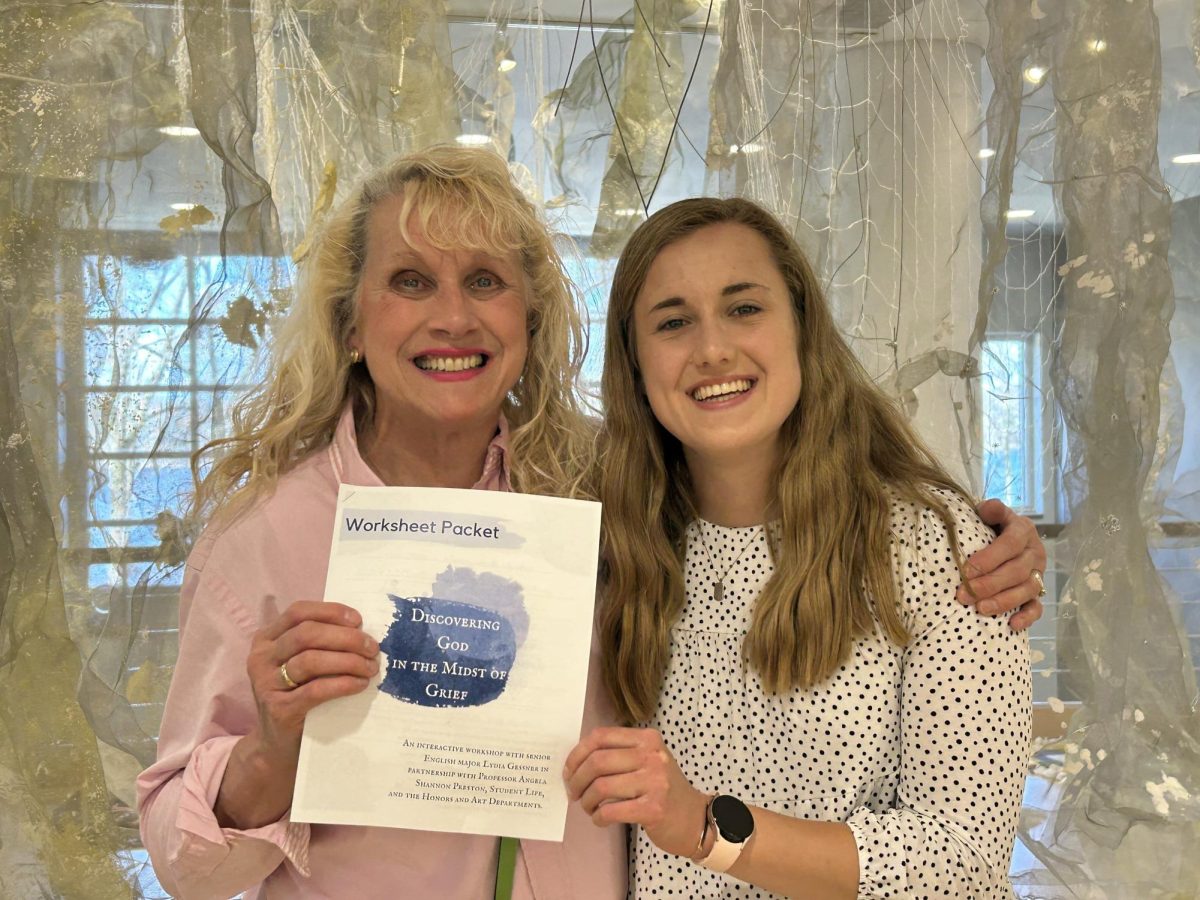
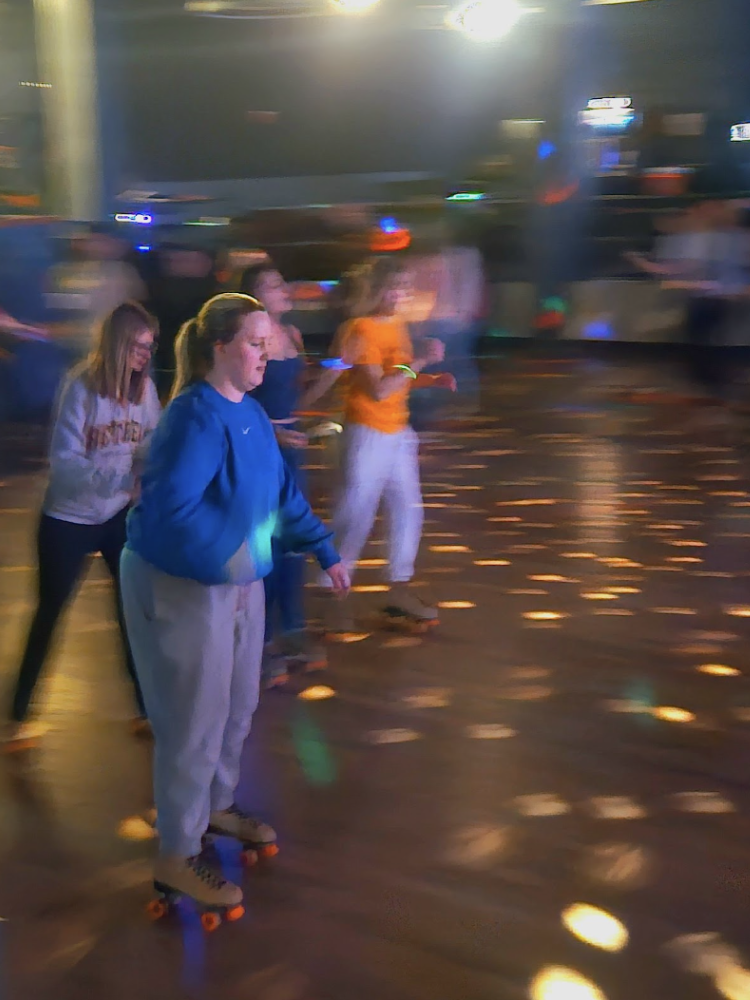
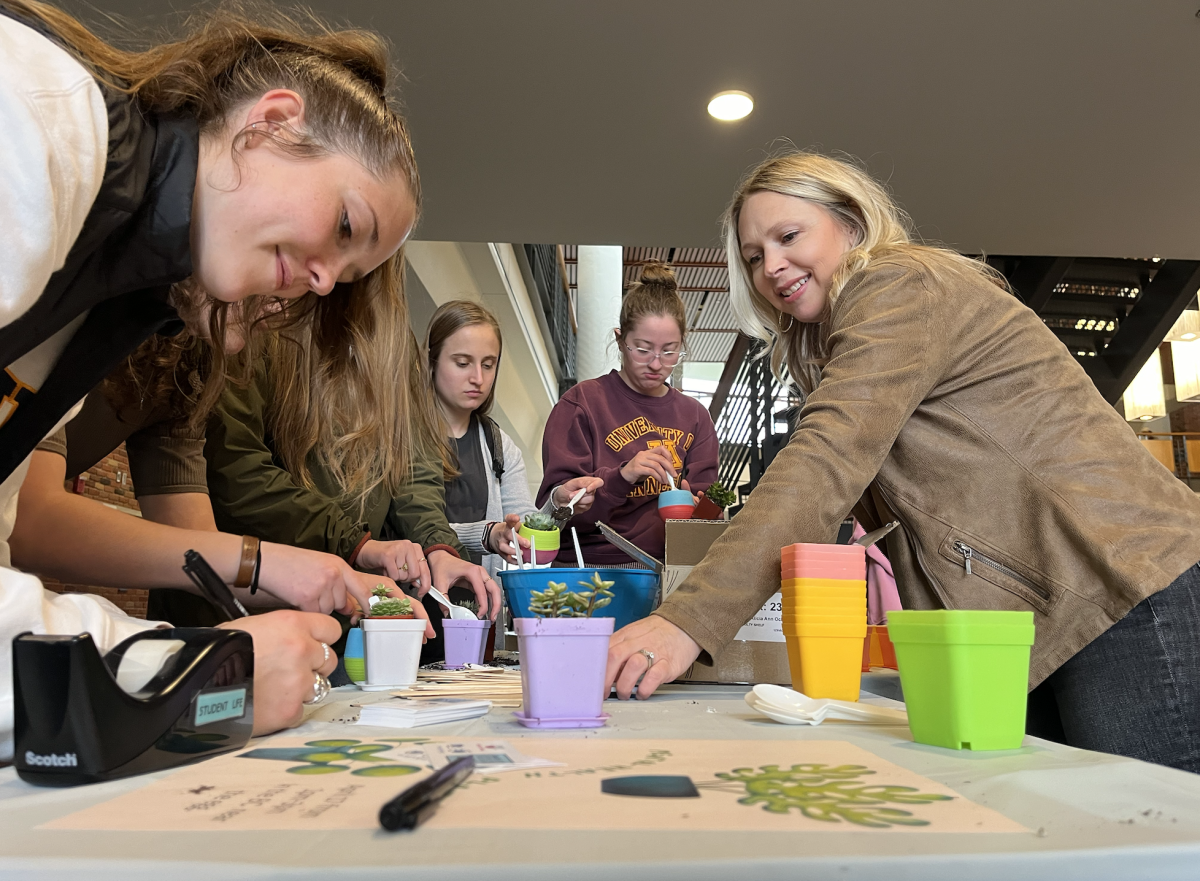
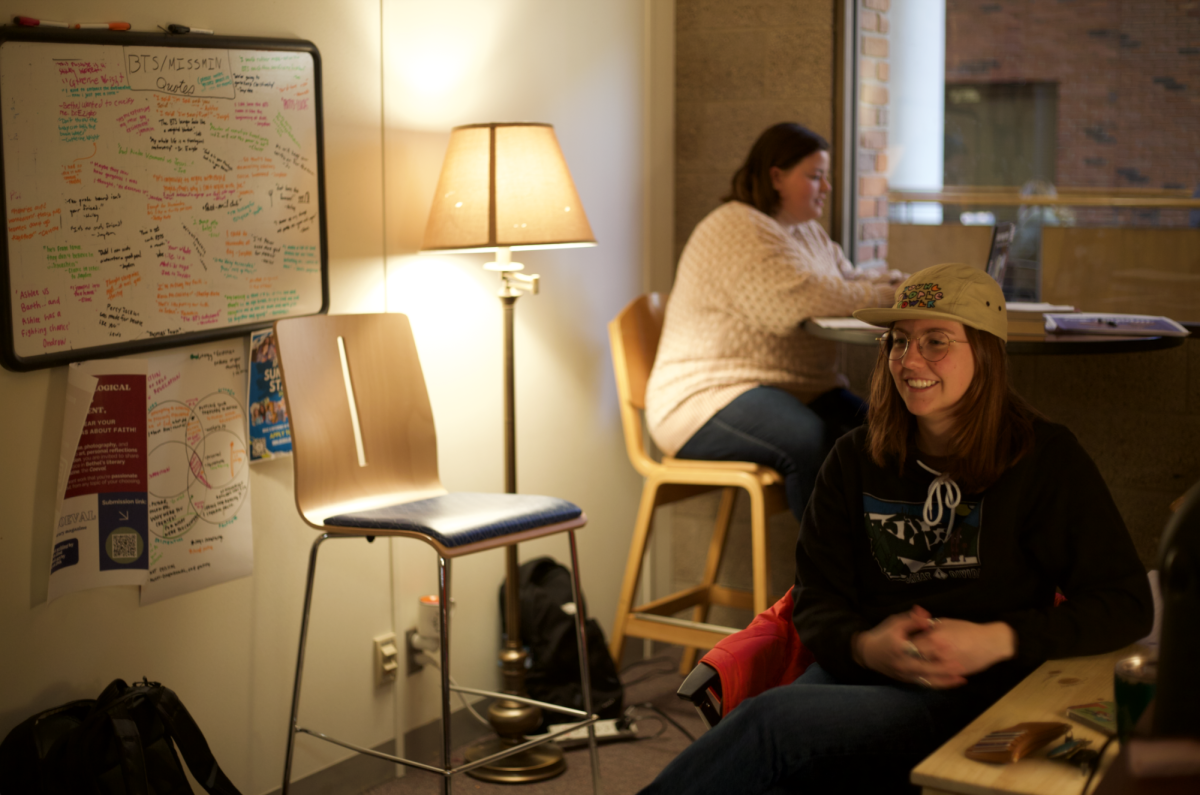
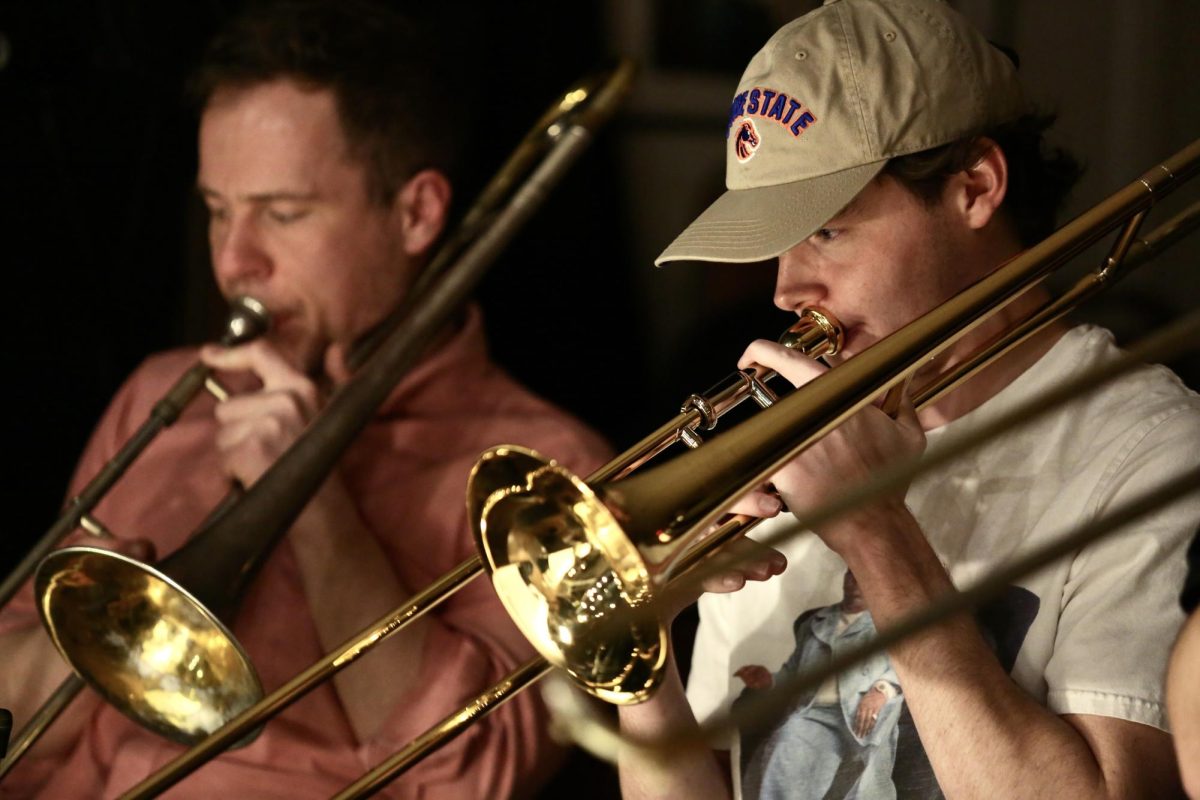
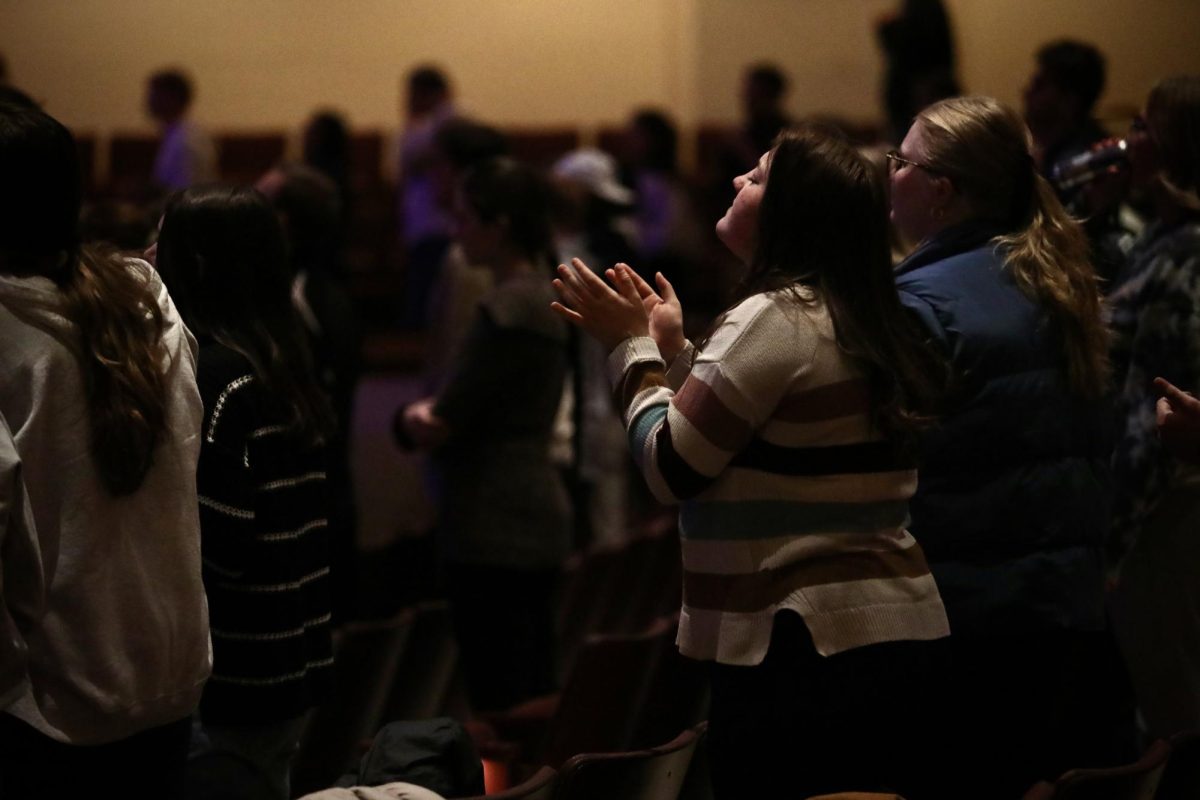
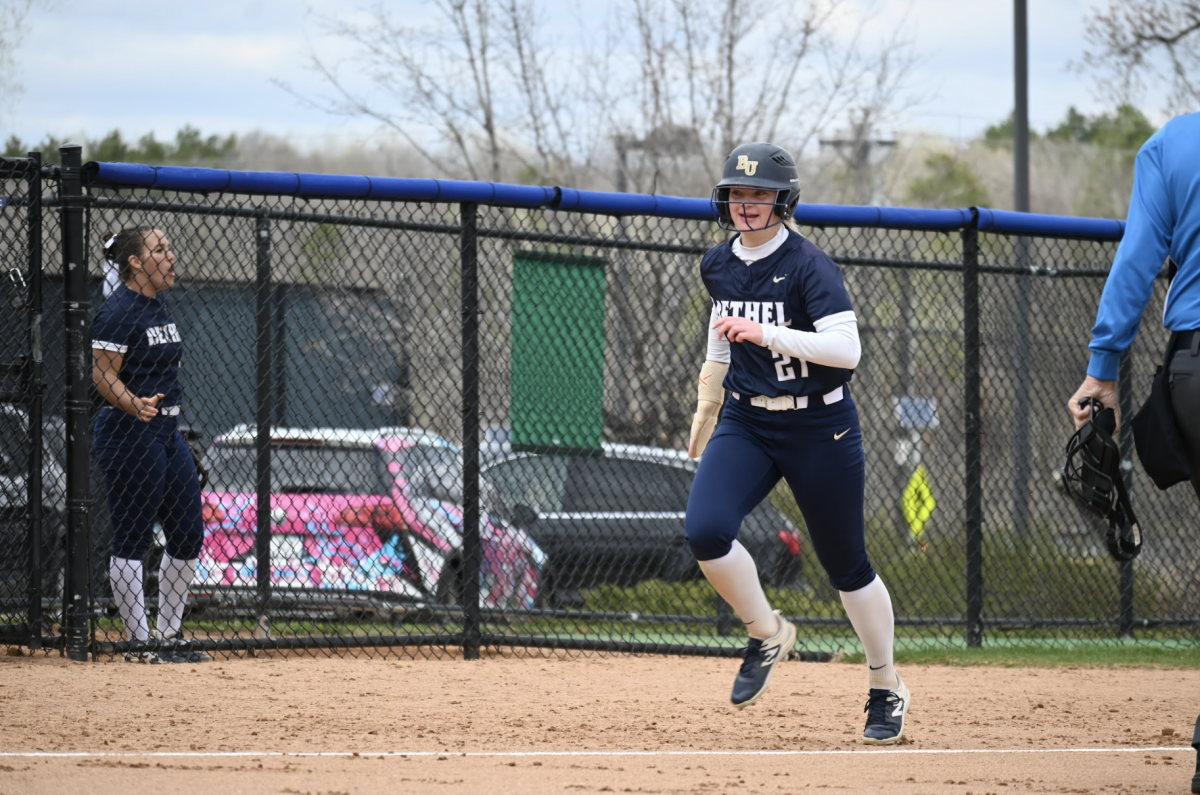

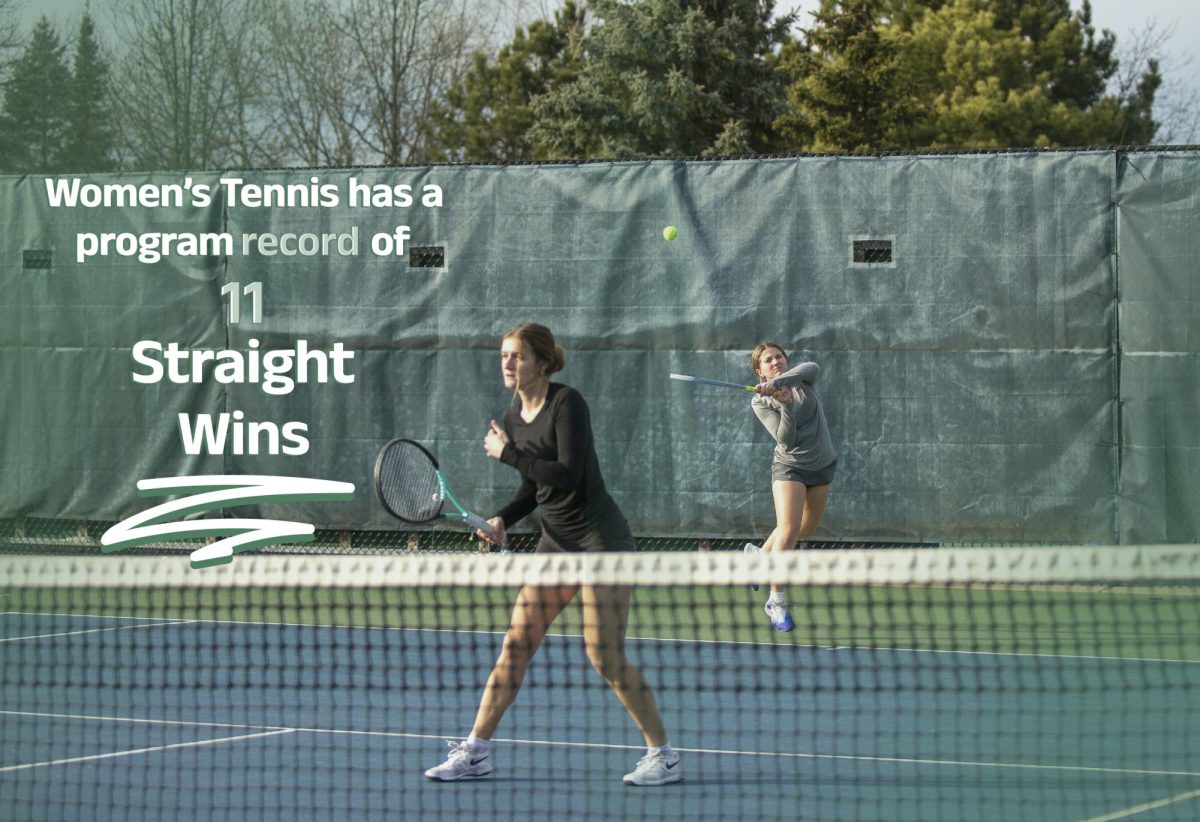
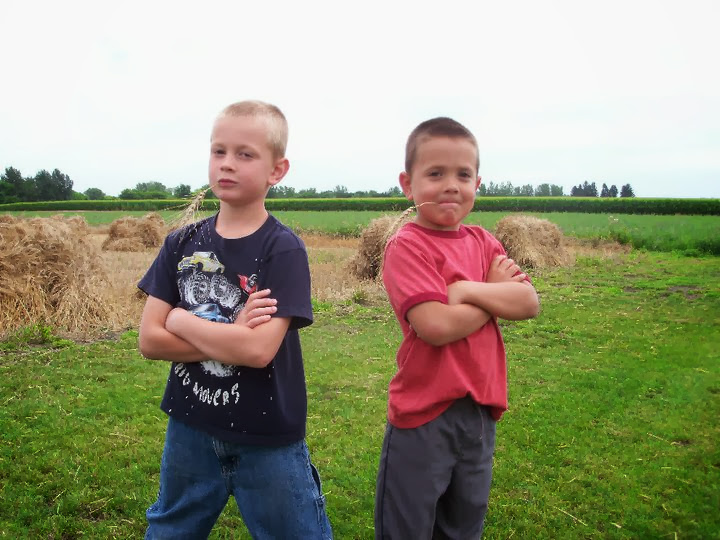
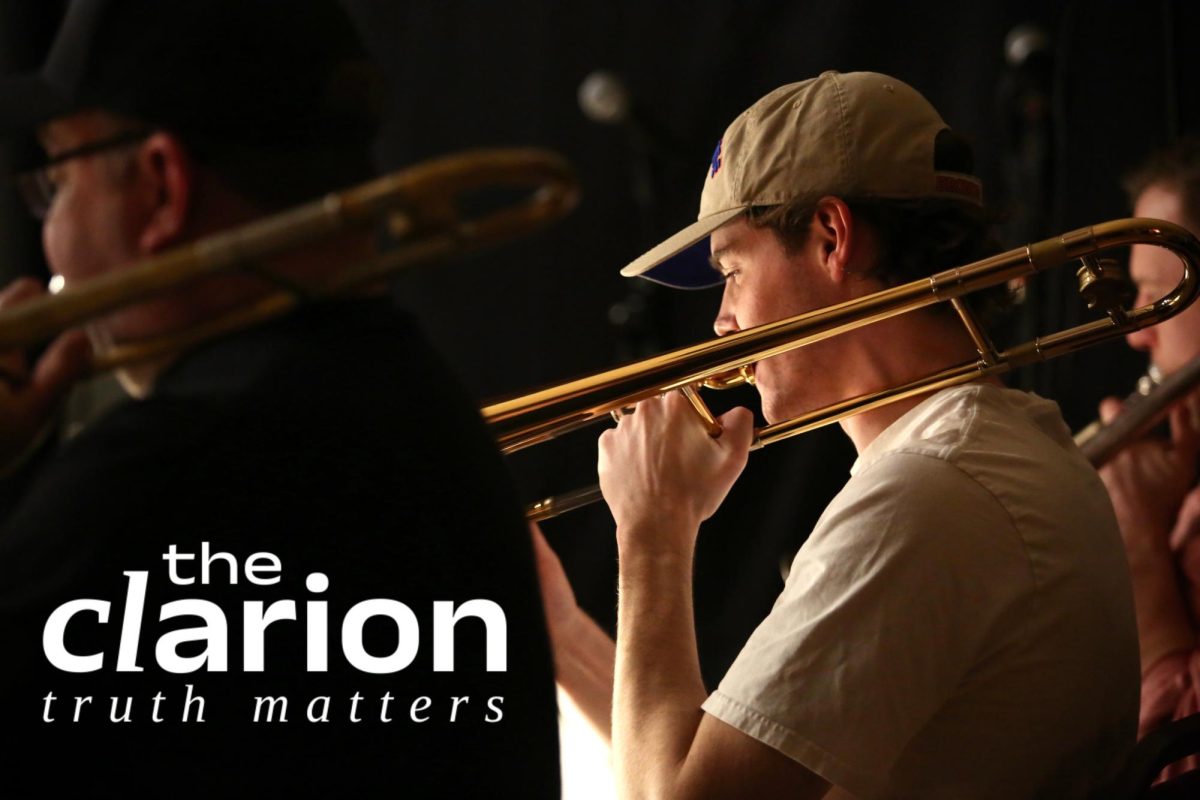
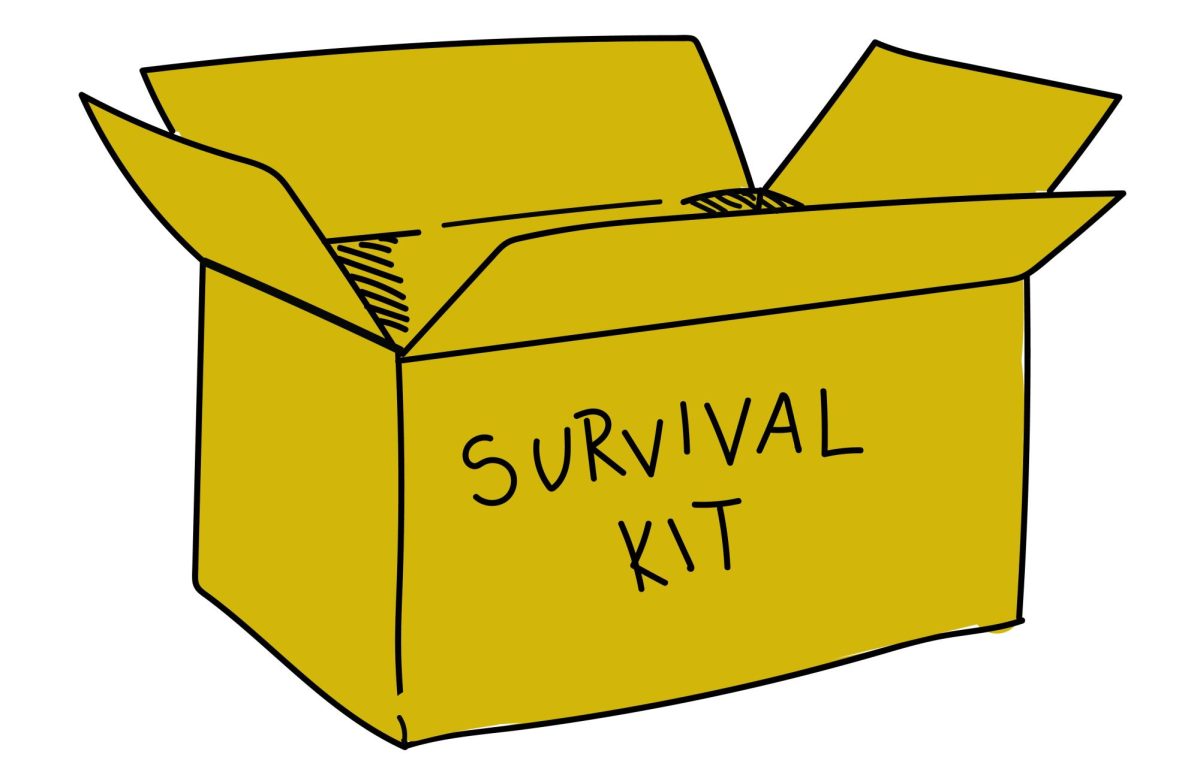




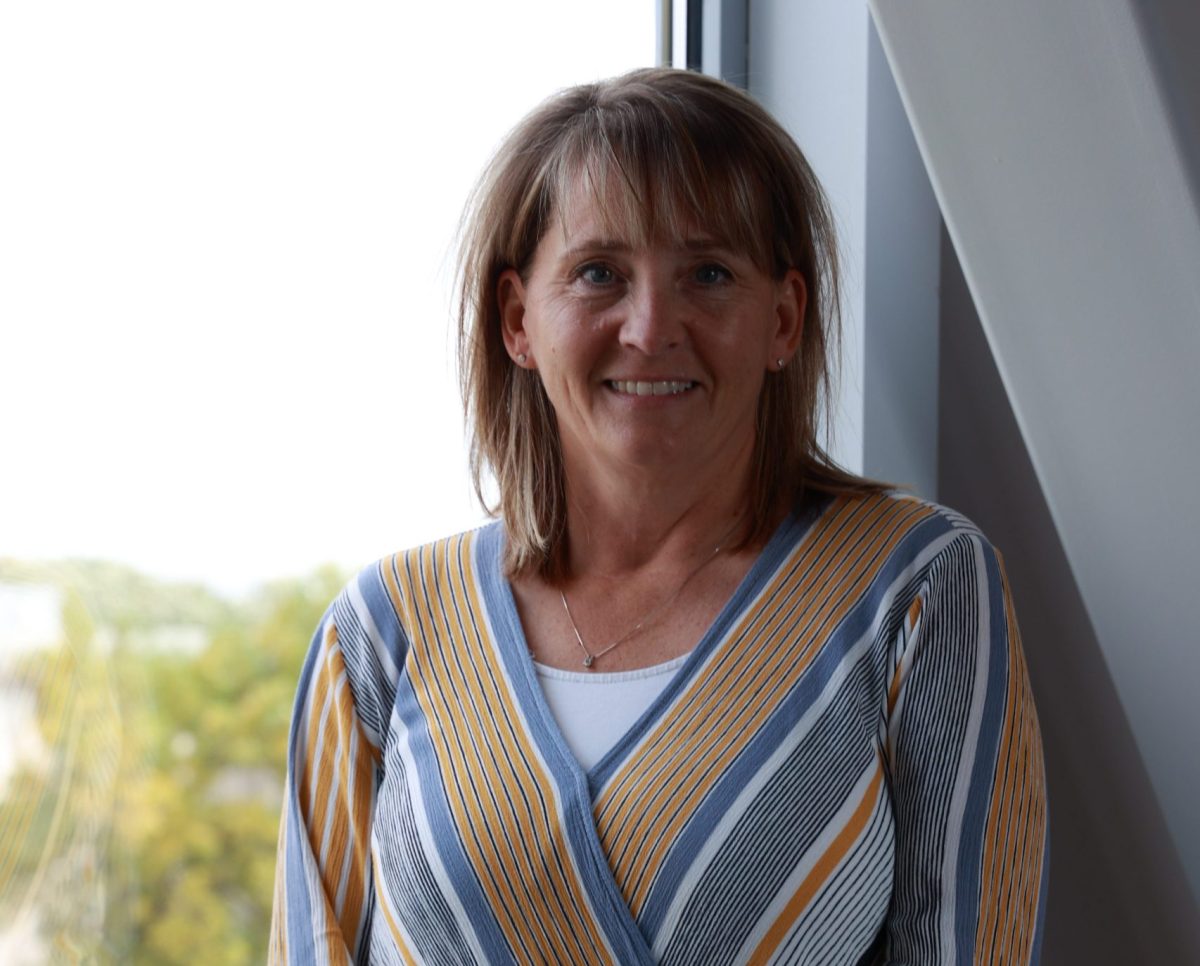
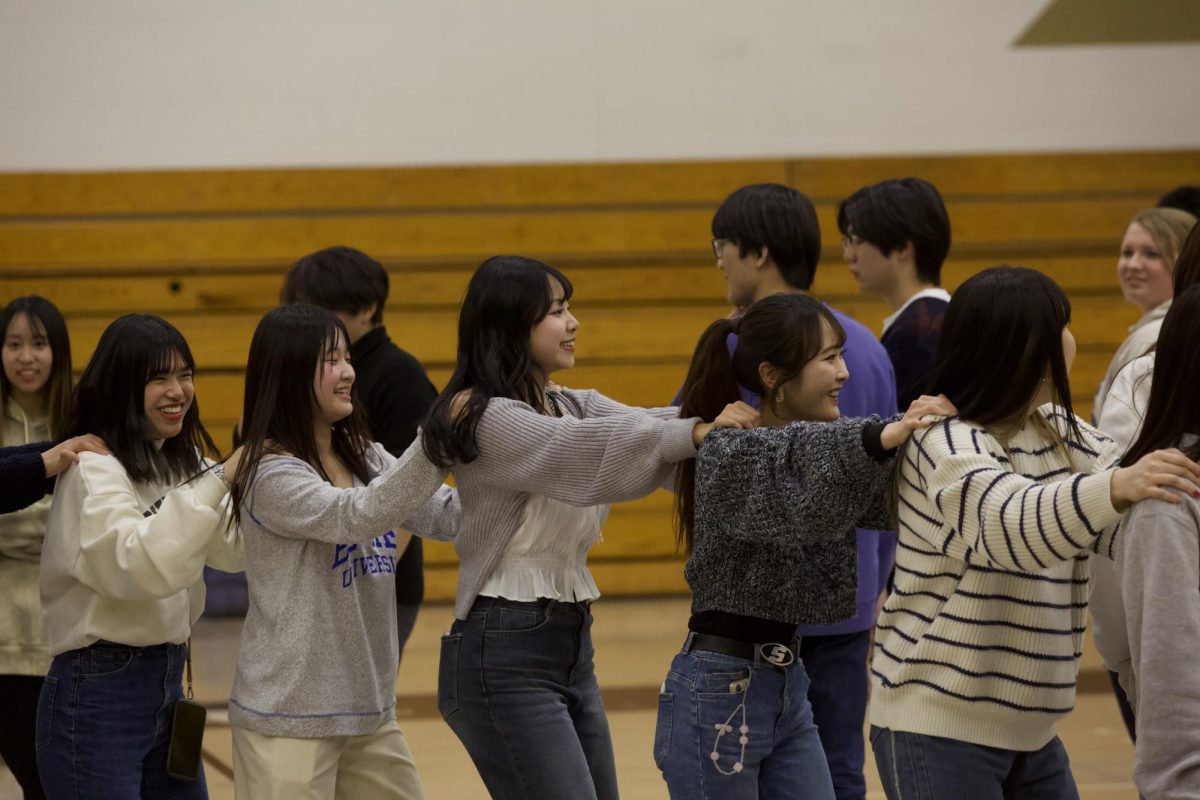
George H Soltero • Nov 2, 2022 at 10:05 am
I know Deanna’s heart and respect her mind. If Ms. Phenow is anything like Deanna – and it sounds like she sure is – these two Ladies are Super Stars!!!! Thank you both for your front-line ministries! Geo.